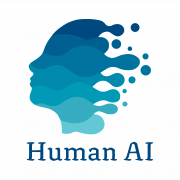“Digitalization and Education in the Age of Artificial Intelligence”
Education in Digital Environments – Bilbao European Encounters 2024
A Commitment to Digital Education
The Bilbao European Encounters 2024 began with an opening speech by Juan Mari Aburto, Mayor of Bilbao, emphasizing the importance of making digitalization in education inclusive and accessible to all. “Technology in education is not a luxury; it is a necessity. We must ensure that no student is left behind in this digital transformation,” said Aburto, reaffirming Bilbao’s commitment to equitable education in the digital context.
Is Digitalization the Solution?
The first panel, Education in Digital Environments, tackled the critical question of the impact of digitalization and education in the era of artificial intelligence. Moderated by Eider Inunciaga, Bilbao’s Councilor for Euskera and Citizen Participation, the discussion featured prominent figures like Carlos Magro, President of the Open Education Association, and María Beunza, CEO of Human AI Tech.
The session explored both opportunities and challenges brought by digitalization in education. One highlight was whether digital tools solve educational challenges or magnify them. “Technology by itself is neither the solution nor the problem. It is how we integrate it into the classroom that makes the difference,” emphasized Carlos Magro. His comment underlined that the challenge isn’t just access to digital tools but their pedagogical application.
From a tech standpoint, Beunza highlighted AI’s transformative potential when effectively implemented. “AI can personalize education, detect socio-emotional skills, and adapt to each student. But it is the teacher who must guide the process, not the machine,” she stressed, underscoring that technology cannot replace the human role in education.
The Digital Divide and Ethical Use of Technology
The widening digital divide emerged as a critical issue during the debate. Although the pandemic accelerated digital adoption in education, it also exposed significant inequalities. “Digitalization risks increasing the gap between those who have access to critical technology use and those who do not,” warned Magro, reflecting the concerns of educators who struggle to maximize the value of classroom devices.
Ethical considerations were also a focus. “What’s exciting about AI is that, for the first time, ethics is at the center of the discussion,” said María Beunza, highlighting the importance of transparency and avoiding perpetuating biases through digital tools. “If we don’t control algorithms, we let technology decide for us, potentially reinforcing inequalities,” she cautioned, urging critical reflection on AI’s role in education.
Questions From the Public: The Voice of Educators
“How are teachers expected to adapt to such a rapidly changing environment when we are already overwhelmed with work and lack resources to train in new technologies?”
Magro replied decisively: “Technology evolves faster than educators can adapt, but the problem isn’t the technology itself—it’s the lack of resources to support this transformation. Innovation must be accompanied by continuous training, which requires investment.” Beunza added, “The key is not mastering every new tool but developing critical digital competencies that allow adaptation to future developments.”
Innovation: At what cost?
The term innovation permeated the discussions, but both speakers agreed that it is often misunderstood. “Innovation for innovation’s sake is a mistake. Technology in education must serve a clear purpose: to improve learning,” stated Beunza. Magro called for thorough evaluation before implementing new technologies at scale: “We’re obsessed with introducing screens and devices into classrooms, but have we truly tested if they improve educational outcomes? What’s missing is evaluation.”
The Future of Education
The panel concluded with a cautiously optimistic message. “Digitalization can be a powerful tool, but it must never replace the human factor. The key is finding a balance between technology and humanity in education,” Beunza remarked in closing.
Magro urged the education community to remain vigilant: “We must not let technology overwhelm us. Digital sovereignty begins in classrooms, teaching students to be critical thinkers and not blindly depend on digital tools.”
This debate made it clear that education stands at a pivotal moment. Technology can be an ally, but only if integrated with clear pedagogical goals and accompanied by ethical and critical reflection.
Ethical and Pedagogical Reflections
During the second panel of the Bilbao European Encounters 2024, titled “Educating Intelligence in a Digital Environment,” philosophers José Antonio Marina and Daniel Innerarity delved into the complexities and challenges posed by artificial intelligence in education. Marina emphasized the need to redefine intelligence in a context where technology seems to be at the forefront of educational transformation. “AI can be part of the solution, but educational problems are only solved through pedagogy and community,” stated Marina, highlighting the importance of human intervention in utilizing these tools.
Daniel Innerarity, for his part, reflected on the duality represented by technology: “AI is a powerful tool, but we cannot overlook the ethical questions it raises. The real challenge is not just incorporating technology but doing so in a way that fosters critical thinking and intellectual autonomy in students.” Innerarity stressed that education cannot rely solely on technology, as it cannot replace deeply human cognitive processes like empathy and moral judgment.
Both speakers agreed that the future of education must focus on shaping individuals capable of using digital tools while maintaining the ability to reflect ethically on their use. This debate underscored the importance of preparing new generations not just to be consumers of technology but also to be critical and responsible citizens in an increasingly digitalized world.
___
The Bilbao European Encounters 2024 made it clear that, in the end, education remains a profoundly human endeavor.






